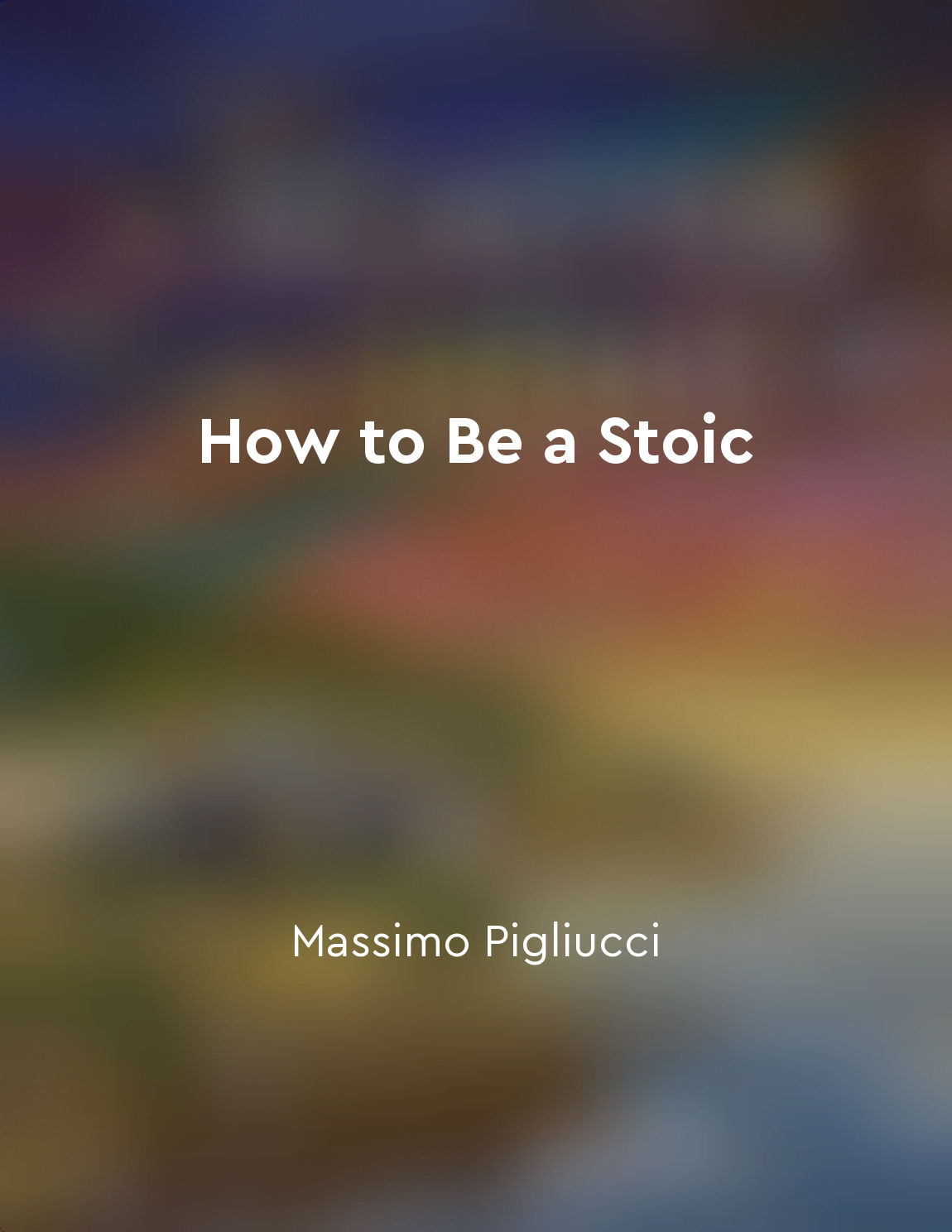Stoicism teaches us to respond wisely to emotions from "summary" of Stoicism and Emotion by Margaret Graver
Stoicism, as a philosophical tradition originating in ancient Greece, offers practical guidance on how to navigate the complexities of human emotions. By examining the teachings of Stoic philosophers such as Epictetus, Seneca, and Marcus Aurelius, we can gain insight into how to respond wisely to the various emotions that we experience in our lives. One key aspect of Stoic philosophy is the notion that emotions are within our control. Instead of being victims of our emotions, Stoicism encourages us to take responsibility for how we respond to them. This means cultivating a mindset that allows us to approach our emotions with rationality and self-awareness. Stoicism teaches us to view emotions as judgments or evaluations of external events rather than as uncontrollable forces that dictate our actions. By recognizing this distinction, we can begin to assess our emotional responses more critically and make deliberate choices about how to react. Central to the Stoic approach is the idea of cultivating an inner sense of tranquility and equanimity. This involves developing a capacity to observe our emotions with detachment and to respond to them with wisdom and moderation. By practicing this kind of emotional self-regulation, we can avoid being swept away by intense feelings and maintain a sense of inner peace. In Stoic philosophy, the goal is not to eliminate emotions entirely but to transform our relationship to them. By learning to view emotions as transient and impermanent phenomena, we can avoid becoming overly attached to them or allowing them to cloud our judgment. This mindset enables us to respond to emotions in a way that is both balanced and constructive.- Stoicism offers a framework for understanding and managing our emotions in a way that promotes personal growth and resilience. By integrating Stoic principles into our daily lives, we can cultivate a deeper sense of emotional intelligence and well-being. Through reflection, self-discipline, and mindfulness, we can learn to respond to our emotions in a way that is guided by reason and virtue.
Similar Posts
Descartes' "I think, therefore I am" marked a shift towards modern philosophy
Descartes' famous dictum, "I think, therefore I am," is widely regarded as a pivotal moment in the history of philosophy. This ...
The philosophical school of Epicureanism advocated for a life of simplicity and pleasure
Epicureanism, a philosophical school that emerged in ancient Greece, emphasized the pursuit of a simple and pleasurable life. T...
The Stoic idea of "living according to nature" was key to achieving inner harmony
The Stoic idea of "living according to nature" was central to their understanding of how to achieve inner harmony. For the Stoi...
Live in harmony with nature and the universe
The Stoics believed that the key to a good life lies in living in harmony with nature and the universe. But what does that mean...
Cultivate wisdom and virtue
The essence of Stoicism lies in the practice of wisdom and virtue. These two fundamental principles form the core of Stoic phil...
Rationality is key in dealing with emotions
The Stoic philosophers argue that rationality is the primary tool we must use in dealing with our emotions. According to their ...

Embrace adversity as an opportunity for growth
When faced with adversity, it is natural to feel discouraged or overwhelmed. We tend to view challenges as obstacles that hinde...

The Stoic way of life promotes ethical behavior and integrity
The Stoic way of life is centered on the pursuit of virtue and living in accordance with nature. This philosophy places a stron...
Stoicism fosters a sense of gratitude
Stoicism teaches us to focus on what is within our control and to accept what is outside of our control with equanimity. By ack...

Stoics believe in living in harmony with nature
The Stoics argue that the key to a good life is to live in harmony with nature. But what does this mean, exactly? The idea is n...

